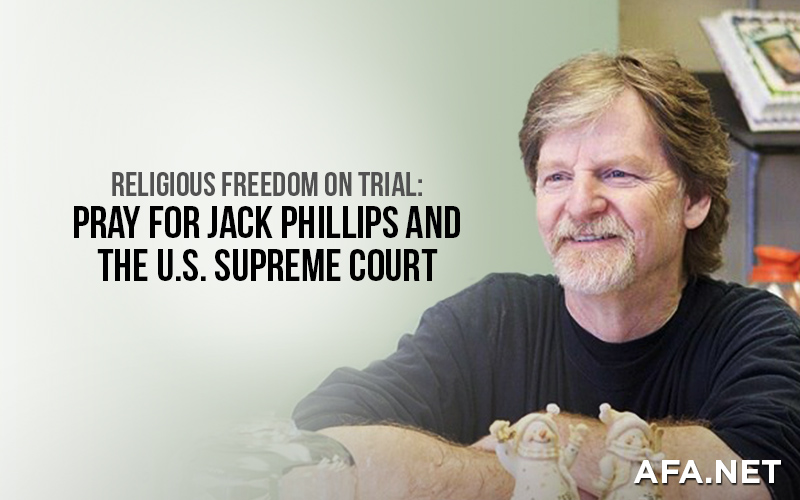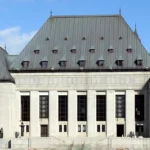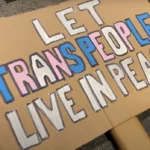Blog Post
VICTORY: US Supreme Court rules in favor of Colorado baker
By Jonathon Van Maren
American Christians have just secured one of the most consequential legal victories for religious liberty in decades, and the first major victory since the Supreme Court legalized gay marriage in 2015: The Supreme Court of the United States has ruled for Jack Phillips of Masterpiece Cakeshop in his long battle to remain true to his conscience. From USA Today:
A divided Supreme Court on Monday absolved a Colorado baker of discrimination for refusing to create a custom wedding cake for a same-sex couple. The verdict criticized the state’s treatment of Jack Phillips’ religious objections to gay marriage, ruling that a civil rights commission was biased against him. As a result, the decision did not resolve whether other opponents of same-sex marriage, such as florists and photographers, can refuse commercial wedding services to gay couples.
Justice Anthony Kennedy wrote the court’s 7-2 decision against the same-sex couple, departing from his long history of opinions in favor of gay rights dating back a generation. Included among them was the court’s 2015 decision legalizing gay marriage nationwide. During oral argument in December, Kennedy and other conservative justices had expressed concern about the potential effect on other merchants with strong religious objections to same-sex marriage, from chefs to florists.
While the case does not specifically address conscientious objection as a whole, LGBT activists may think twice before attempting to destroy the lives of those who disagree with them due to the fact that Justice Kennedy obviously sees a social compromise in which the legality of gay marriage does not conflict with religious liberty and the conscience rights of Christians as essential. While the LGBT movement has long since moved past the convenient rhetoric of “live and let live” that they utilized so effectively in the battle for the redefinition of marriage, Kennedy obviously believed it. More:
The five-year-old legal battle between Phillips and customers Charlie Craig and David Mullins represented a test between the Constitution’s guarantees of free speech and religion and laws in 22 states prohibiting discrimination against the LGBT community. Phillips, 62, owner of Masterpiece Cakeshop, was fighting for the rights of “creative artists” to choose what they will sell. Craig, 37, and Mullins, 33, were fighting for the rights of LGBT customers to choose what they will buy.
One clarifying remark: As many commentators pointed out, this was not simply about two gay men fighting for the right to buy what they liked. This was about people being able to force an artist to create art that conflicted with his or her values—as many pointed out, would a gay baker be forced to create a beautiful cake celebrating, say, Bermuda’s repeal of same-sex marriage? Of course not.
Craig and Mullins won before the Colorado Civil Rights Commission and the state Court of Appeals, thanks to the state’s inclusion of sexual orientation in its anti-discrimination law. Twenty-one other states have similar laws. But the Supreme Court, bolstered last April by the addition of stalwart conservative and fellow Coloradan Neil Gorsuch, represented a tougher test.
The high court had weighed in twice before on the subject of same-sex marriage. In 2013, it ruled that the federal government must recognize gay and lesbian marriages in the 12 states that had legalized them. In 2015, it extended same-sex marriage nationwide.
But even as he authored the court’s landmark decision, Kennedy held out an olive branch to religious conservatives. “It must be emphasized that religions, and those who adhere to religious doctrines, may continue to advocate with utmost, sincere conviction that, by divine precepts, same-sex marriage should not be condoned,” Kennedy wrote in 2015.
This victory was an essential one. To have lost this case would have been to encourage the prosecution of Christians that chose to follow their conscience right across the United States. Instead, the Court has chosen to affirm, albeit in a limited way, the religious liberty that Kennedy promised in his 2015 decision to redefine marriage. And it is certainly a major setback for the LGBT activists who are so determined to destroy dissenters like Jack Phillips.
___________________________________________________
For anyone interested, my book on The Culture War, which analyzes the journey our culture has taken from the way it was to the way it is and examines the Sexual Revolution, hook-up culture, the rise of the porn plague, abortion, commodity culture, euthanasia, and the gay rights movement, is available for sale here.









I caution you not to over-extend – the crux of this case was whether Masterpiece Cake Shop was treated fairly, not whether Masterpiece Cake Shop could legally discriminate. From your own article:
“The verdict criticized the state’s treatment of Jack Phillips’ religious objections to gay marriage, ruling that a civil rights commission was biased against him. As a result, the decision did not resolve whether other opponents of same-sex marriage, such as florists and photographers, can refuse commercial wedding services to gay couples.”
As the article says, this does not resolve the issue, this simply states that the State was unfair in its decision and therefore the decision should not stand. Anything else the Court stated was technically Obiter Dicta and is not binding on the lower courts. Furthermore, it would be incredibly easy to distinguish this case on the mere fact that it was really about procedural fairness rather than substantive interpretation of the law.
Really, all this did was re-start the case at the Commission level. And, if the Commission doesn’t make comments comparing the Masterpiece Cake Shop’s actions to the Holocaust or slavery (actual metaphors used), the substantive issue will be decided by the Commission and Courts. Masterpiece Cake Shop certainly won’t win on a procedural fairness argument then.
So, does it put an end to LGBT human rights litigation? Not at all, it simply says the State has to be fair to both sides in these things.
I disagree. See David French’s take here: https://www.nationalreview.com/2018/06/masterpiece-cakeshop-ruling-religious-liberty-victory/
I will concede some points to you – there were some important statements by Justice Kennedy there.
I will concede:
– the matter was not merely returned to the Commission without guidance; and,
– Justice Kennedy affirmed the State is duty bound to protect all human rights, not to pick and choose.
However, Justice Kennedy did not do any of the hard work balancing two competing rights. If a case like this comes before the Commission again, this case stands for the principle that the competing human rights must be respected and carefully balanced . It does not give primacy to one or the other. From the linked article:
“He first argued that creating a custom cake constituted an act of protected expression under the First Amendment, and he could not be compelled to exercise that expression to support a same-sex wedding.
The Court essentially punted on the question, noting that it raised complex and difficult issues. To the extent that the dicta provides any guidance going forward, it seems that the greater the obvious expressive content, the greater the constitutional protection. In other words, a cake that contains words or symbols might enjoy greater protection than a cake with no obvious expressive meaning. But that’s speculation. The case wasn’t decided on that basis.”
Note the word “dicta” in the second quoted paragraph – that means the court expressed non-binding thoughts on the subject. The Commission is not required to use these thoughts (but would be wise to do so if they don’t want the Supreme Court to get annoyed). Note also the last two sentences of the quoted paragraphs.
This leaves the central issue open to further litigation. Yes, the Commission will have to more carefully consider religious rights in the future but, no, the Commission does not have to side with the religious respondent based on this case.
And that is fair. As Justice Kennedy says, if two interests are protected, one interest should not be attacked while the other protected (the State decided in favour of the opposite argument in three cases per Justice Kennedy in the linked article). There must instead be a careful balancing of the interests and both interests ought to be protected, as far as is possible.
Therefore, all this case says is the State has to consider the religious rights of individuals in its decision and be careful when balancing rights, lest the State protect one right it is duty bound to protect at the expense of another right it is duty bound to protect, without good and proper justification.